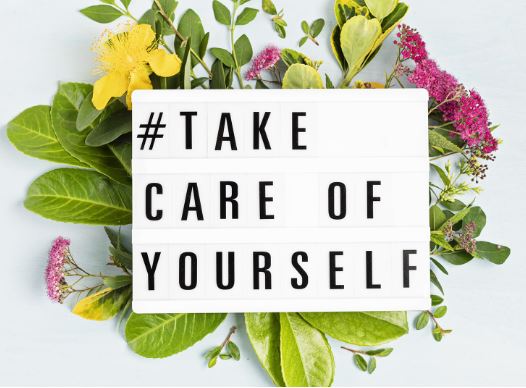Tips to improve your physical and mental health
Introduction
It’s no secret that maintaining healthy physical and mental health is essential for overall well-being. In today’s fast-paced society, it’s easy to neglect self-care and prioritize other aspects of our lives. However, investing time and effort into our physical and mental health can have significant long-term benefits. In this blog post, we’ll explore practical strategies and tips for maintaining a healthy body and mind.
Taking care of our physical and mental health is crucial for leading a fulfilling life. It involves engaging in activities that promote physical fitness, eating a balanced diet, prioritizing mental well-being, and practicing self-care. This blog post aims to provide a comprehensive guide on how to maintain healthy physical and mental health. We’ll delve into various tips and strategies that can easily be incorporated into your daily routine.
Physical Health
Physical health encompasses various aspects, including exercise, nutrition, and sleep. Let’s explore each of these in detail.
Exercise
Regular exercise is key to maintaining a healthy body. It not only improves physical fitness but also boosts mental well-being.
- Find an activity you enjoy: Whether it’s jogging, swimming, dancing, or playing a sport, choose something that brings you joy. Enjoying the activity increases the likelihood of sticking with it in the long run.
- Set realistic goals: Start slowly and gradually increase the intensity and duration of your workouts. Setting achievable goals will keep you motivated and prevent burnout.
- Make it a habit: Schedule designated exercise time in your daily routine. Consistency is key to reaping the benefits of physical activity.
- Incorporate different types of exercise: Include a combination of aerobic exercises, strength training, and flexibility exercises to maximize overall fitness.
- Stay hydrated: Drink plenty of water before, during, and after your workouts to keep your body hydrated.
Nutrition 
Maintaining a healthy diet is crucial for fueling your body with the necessary nutrients. Here are some tips to improve your nutrition:
- Eat a balanced diet: Include a variety of fruits, vegetables, whole grains, lean proteins, and healthy fats in your meals. Avoid or limit processed foods, sugary drinks, and excessive sodium and saturated fats.
- Practice portion control: Be mindful of portion sizes and listen to your body’s hunger and fullness cues. Eating mindfully can help prevent overeating.
- Plan your meals: Prepare a weekly meal plan and grocery list to ensure you have nutritious options readily available. This can help you avoid unhealthy food choices when you’re hungry or pressed for time.
- Snack smartly: Choose healthy snacks such as nuts, fruits, or yogurt instead of reaching for processed snacks high in sugar and unhealthy fats.
- Stay hydrated: Drink an adequate amount of water throughout the day to support digestion, metabolism, and overall health.
Sleep 
Getting sufficient and quality sleep is crucial for both physical and mental health. Follow these tips to improve your sleep hygiene:
- Maintain a consistent sleep schedule: Go to bed and wake up at the same time every day, even on weekends. This helps regulate your body’s internal clock.
- Create a relaxing bedtime routine: Engage in calming activities such as reading, taking a warm bath, or practicing meditation before bed. Avoid stimulating activities such as screen time or intense exercise close to bedtime.
- Create a sleep-friendly environment: Make your bedroom dark, quiet, and cool. Invest in a comfortable mattress, pillows, and bedding to create an optimal sleeping environment.
- Limit caffeine and alcohol consumption: Avoid consuming caffeinated beverages or alcohol close to bedtime, as they can disrupt sleep patterns.
Mental Health
Maintaining mental health is equally important as physical health. Here are some strategies to prioritize your mental well-being:
Practice Self-Care
Self-care involves engaging in activities that promote relaxation, rejuvenation, and self-reflection. Here are some self-care practices to consider:
- Engage in activities you enjoy: Make time for hobbies, interests, or activities that bring you joy and help you unwind.
- Prioritize “me” time: Set aside dedicated time for yourself each day to do something that makes you happy, whether it’s reading a book, taking a walk, or practicing mindfulness.
- Practice relaxation techniques: Explore various relaxation techniques such as deep breathing exercises, yoga, or meditation to reduce stress and promote mental calmness.
Seek Social Support
Building and nurturing meaningful relationships is crucial for maintaining positive mental health. Here’s how you can seek social support:
- Connect with loved ones: Spend quality time with family and friends. Share your thoughts, feelings, and experiences with trusted individuals who can provide support.
- Join communities: Engage in social activities or join groups that focus on similar interests or hobbies. This can help you meet new people and expand your social circle.
- Seek professional help if needed: If you’re experiencing persistent feelings of sadness, anxiety, or other mental health concerns, don’t hesitate to reach out to a mental health professional. They can provide guidance and support tailored to your individual needs.
Practice Mindfulness
Mindfulness involves being fully present and aware of the present moment without judgment. This practice can significantly benefit your mental health. Consider the following mindfulness techniques:
- Meditate regularly: Set aside a few minutes each day to practice meditation. Focus on your breath or engage in guided meditation sessions to cultivate mindfulness.
- Practice gratitude: Take a moment each day to reflect on things you’re grateful for. This can help shift your focus to positive aspects of life and improve overall well-being.
- Engage in mindful activities: Whether it’s going for a walk in nature, savoring a meal, or simply observing your surroundings, bring mindfulness to everyday activities.
Conclusion
Maintaining healthy physical and mental health is a lifelong journey. By incorporating regular exercise, a balanced diet, quality sleep, self-care practices, social connections, and mindfulness techniques into your routine, you can enhance your overall well-being. Remember that small changes can make a significant difference in your physical and mental health. Prioritize self-care and make yourself a priority. Start today and embark on your journey to a healthier and happier life.
Now that you’ve learned some strategies for maintaining healthy physical and mental health, take the first step towards implementing them into your life. Start by choosing one area to focus on, such as incorporating regular exercise or practicing mindfulness, and gradually build from there.
You deserve to prioritize your well-being and live a life filled with vitality, energy, and joy.

Good Self Care Tips Thanks For Sharinng.